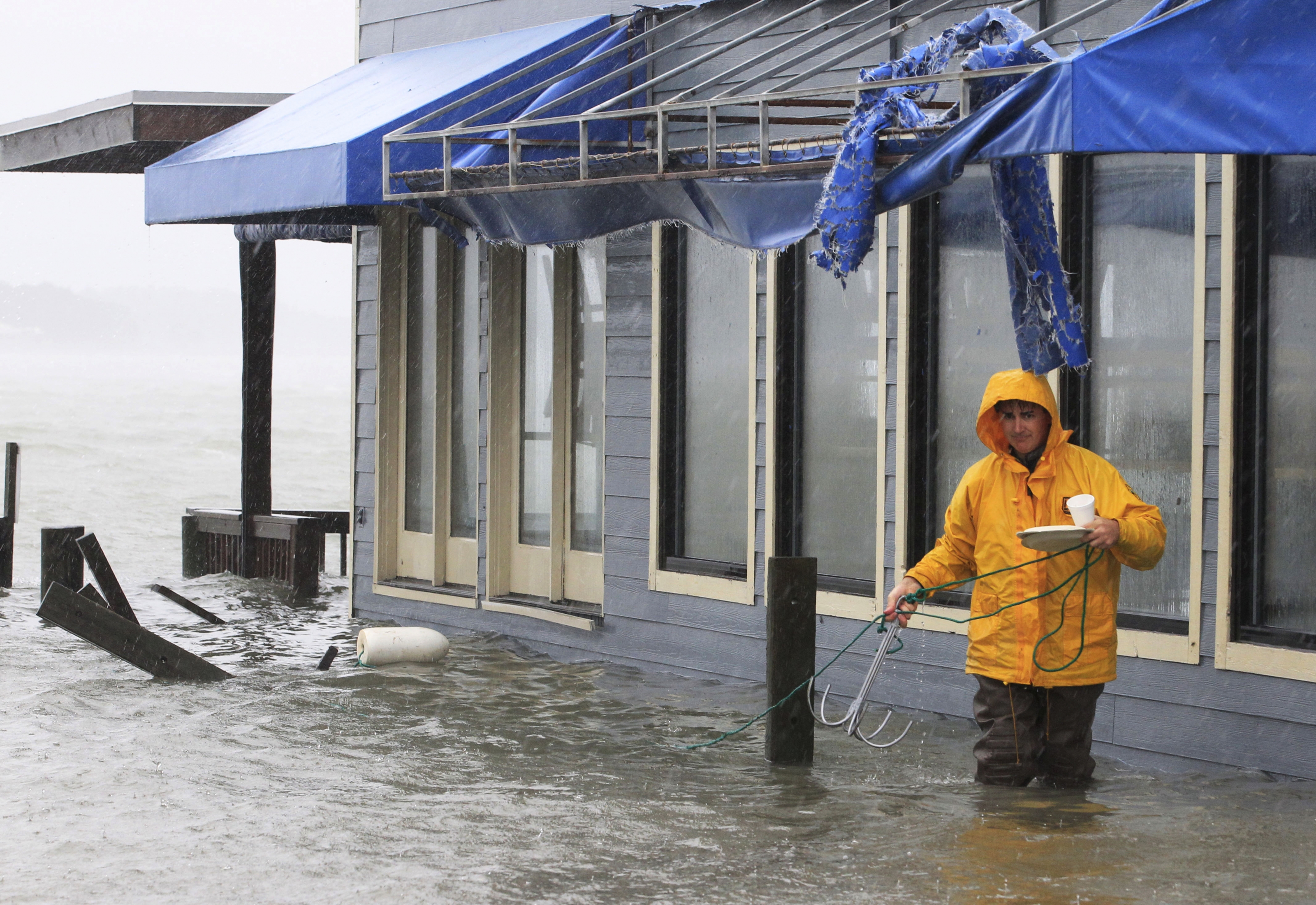Voters in the sprawling coastal city of Virginia Beach will decide whether or not to approve one of the most important municipal bonds in the United States that would be used to protect against rising seas and intensifying hurricanes.
VIRGINIA BEACH, Va. (AP) – Voters in the sprawling coastal city of Virginia Beach will decide whether or not to approve one of the most important municipal bonds in the United States that would be used to protect against rising seas and l intensification of hurricanes.
If passed on Tuesday, the $ 568 million would fund anything from raising roads to closing a 100-acre (40-hectare) golf course to collect stormwater.
If this fails, economists say the city could lose billions of dollars over the next half century as recurring flooding floods roads, businesses and homes.
The referendum highlights the growing costs of adapting to climate change for American cities. But it will also be a measure of Americans’ willingness to approve such bonds as more communities seek funding.
“I’m not convinced that will pass,” said Virginia Wasserberg, whose Virginia Beach home was among 1,400 homes and businesses flooded by heavy rains caused by the remnants of Hurricane Matthew in 2016.
Wasserberg, 41, is a conservative Republican who homeschool her children and supports the bond. She has campaigned for more flood protection since her neighborhood’s drainage systems were overwhelmed by weeks of rain which culminated with Matthew.
Homes miles from the city’s beaches on the Atlantic Ocean and Chesapeake Bay were first flooded. Wasserberg said she and her family fled to the second floor and called 911 – only to be told responders couldn’t reach them.
“I like to say it took a disaster to wake me up,†Wasserberg said.
Voters’ approval is far from guaranteed in this city of nearly half a million inhabitants, which some political observers may lean in favor of the libertarian. If the bond passes, property taxes would rise from $ 115 to $ 171 per year for a median taxable value home, according to city officials.
The need for money to protect communities from climate change is increasing across the world, especially in the world’s poorest countries. This will be a topic of discussion at an upcoming United Nations climate change conference, which begins in Glasgow on Sunday.
In the United States, 26% of postal codes are “highly exposed to flooding,” according to Moody’s ESG Solutions, which tracks climate risk and sustainable finance.
“As climate change becomes a growing threat, more and more governments will focus on climate change adaptation and resilience projects,†said Matt Kuchtyak, vice president of outreach and advocacy. group research.
Several cities have already approved important bonds. For example, Miami residents voted in 2017 to fund a $ 400 million bond, nearly half of which would pay for things like storm sewer and dike upgrades.
Voters in San Francisco have adopted a $ 425 million bond to pay for the first phase of strengthening a seawall that protects against earthquakes and rising oceans. That same year, Houston-area voters backed $ 2.5 billion in bonds for flood relief projects in the aftermath of Hurricane Harvey.
Bonds could become the main vehicle for financing, said Richard Wiles, executive director of the Center for Climate Integrity, which argues that oil companies should cover these costs because of the link between fossil fuels and climate change.
“None of these cities have hundreds of millions of dollars lying around,†Wiles said, adding that Virginia Beach had offered one of the bigger bonds.
The city could prove to be an interesting testing ground.
A 2021 telephone survey of 400 residents found that just over half were willing to pay more taxes for flood protection projects, according to a report from Old Dominion University. But half also agreed that people who don’t experience flooding on their properties shouldn’t have to pay for such projects.
And yet, the lands of Virginia Beach are sinking and the sea is rising at an alarming rate. Since 1960, the sea level has risen by almost a foot (0.3 meters). And they are likely to increase by 1.5 to 3 feet (0.5 to 1 meter) over the next half century.
Much of Virginia Beach is on low coastal plains. Water can flow slowly through tidal rivers and tributaries, sometimes with nowhere to go during heavy rains and high tides.
The bond-funded projects could help the city avoid up to $ 8 billion in flood losses and associated economic impacts over the next several decades, according to the Old Dominion University report. The losses are equivalent to about a quarter of Virginia Beach’s gross domestic product – or its total output of goods and services.
“As flooding becomes more frequent, insurers will raise premiums, deny coverage, and at some point leave Virginia Beach entirely,†said economics professor Robert McNab. “Businesses will have more difficulty getting goods to market and, of course, residents will have more problems getting around the area. “
John Moss, a city councilor who was a big force behind the referendum, said Virginia Beach could still complete flood protection projects if the referendum failed. But he said it would take 25 years instead of around a decade.
And even if the link passes, the projects will be about a third of what is needed for overall protection against 1.5 feet of sea level rise, Moss said.
“It’s a big request,†Moss said of the link. “But the threat is real.”
Copyright © 2021 The Associated Press. All rights reserved. This material may not be published, broadcast, written or redistributed.

